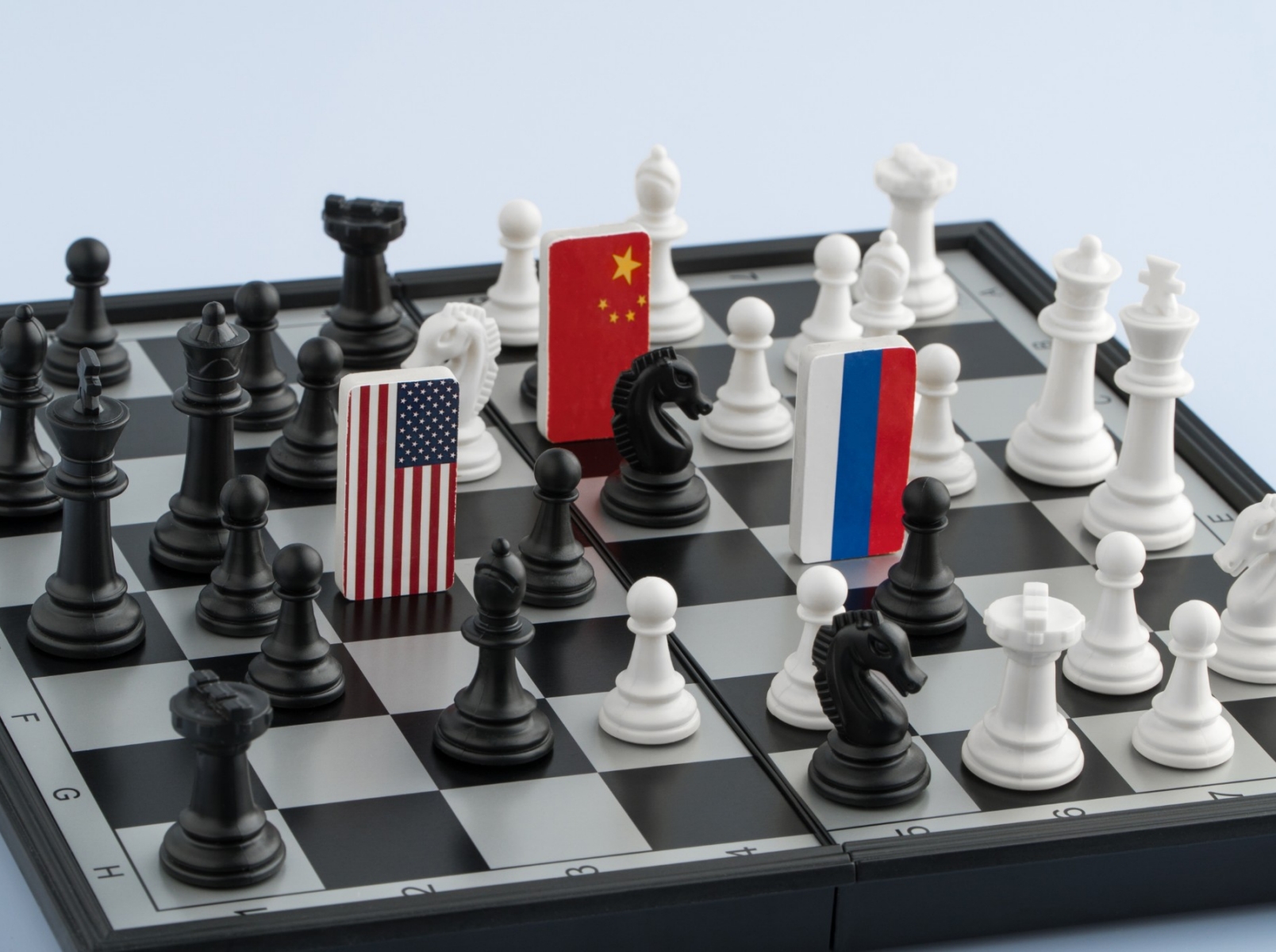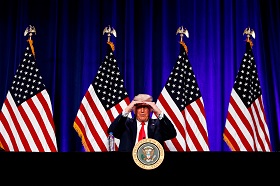The attack on China can be considered one of the pillars of outgoing President Trump's foreign policy. At the same time, the policy of containing the PRC was formed even before Trump's arrival at the White House. Key problems that stimulate the US containment policy towards China have existed openly or latently before.
The COVID-19 pandemic was a key problem in 2020, as every review of the results of the outgoing year will indicate. Indeed, the pandemic radically affected many plans and careers, and not to mention our lifestyle. It created a sense of high instability. However, the main trends in the field of international security have not undergone radical changes. Hopes for a unifying role of the pandemic in resolving political contradictions were negligible.
The growing rivalry between the PRC and the United States is one such trend. 2020 was marked by an almost avalanche-like deterioration in relations between Washington and Beijing. The US launched an active offensive against China. The ideas that matured in previous years have been put into practice. Washington's strategic objectives can be divided into several groups. (1) To slow down the technological growth of the PRC, prevent the interconnection of its civil and military sectors, and to knock China out of the markets for promising high-tech products. (2) To prevent the realisation of the advantages associated with the organisation of the Chinese economy (such advantages include the active support of strategic industries by the state). (3) To hinder the leakage of technology and know-how from the United States to China, including intensifying the fight against industrial espionage, control of property rights, restrictions on investments, bans on the work of Chinese scientists in the United States, etc. (4) To exercise ideological pressure on the PRC, including the situation with human rights and democracy, positioning China as an authoritarian communist state. And also - rejection of the integration of Hong Kong into the legal and administrative space of the PRC, criticism of the Chinese policy towards minorities, etc. (5) To carry out military deterrence against China and balance its growing capabilities in the Asia-Pacific region. (6) To build flexible anti-Chinese coalitions, reformatting relations with allies in Europe and Asia on an anti-Chinese basis, attracting new allies. The COVID-19 pandemic has only exacerbated the US administration's offensive impulse. In the American narrative, China is the key originator of the pandemic. This line featured in the rhetoric of Congress, the president (who at the same time attacked the allegedly "pro-Chinese" WHO), and state authorities, not to mention numerous media outlets.
The attack on China can be considered one of the pillars of outgoing President Trump's foreign policy. At the same time, the policy of containing the PRC was formed even before Trump's arrival at the White House. Key problems that stimulate the US containment policy towards China had existed openly or latently before. These include fears of the growth of the PRC, disappointment in its reforms, and dissatisfaction with the foreign policy of Beijing. Therefore, Donald Trump's departure from the White House is unlikely to change the basic course. Joseph Biden's policies may be more restrained in terms of rhetoric, more cautious in showing force (when actively using it where it is required), more consistent in the diplomatic preparation of certain steps towards Beijing, and more sensitive to the interests of American business, for which a sharp break with China is fraught with high costs. However, in any case, it will not go beyond the containment track that was formed during the Trump presidency and outlined long before him.
In China itself, apparently, they realised that the US offensive is serious and has long-term repercussions. It's doubtful that China harbours a desire for expansion and revisionism, which are attributed to it by the American narrative. China hasn't sought to promote "communist ideas" overseas. It hasn't exported "authoritarianism." Its economic projects, like the Belt and Road, are primarily commercial. The PRC feels quite comfortable in the liberal world order and with the processes of globalisation. They allowed China to develop successfully while maintaining a free hand in domestic and foreign policy. In Washingtons eyes, this situation looks unacceptable. Either it is necessary to switch to the rails of democracy, the market and moderate ambitions in foreign policy, or not to enjoy the benefits of the liberal order. The problem is that China is a too big player. Its squeezing out and isolation will leave Beijing no choice but to form its own sphere of influence, a pool of allies and an alternative vision of a global, or at least regional order. Tactically, the US may well make China "run slower." Strategically, Washington risks losing the ability to influence the PRC through the American model of globalisation and stands to get a powerful adversary and competitor in the future. If earlier it was only one of the possible scenarios, now it has become the basic scenario.
The big question is how exactly coalitions will be formed in the already-unfolding rivalry between the two powers. It seems that there are not so many countries willing to get involved in a fight on one side or the other. However, in January 2021 it is still possible to spot some trends. First, the European Union is cautious in favouring cooperation with the United States. In the Washington-Beijing-Brussels triangle, the latter is closer to the US, despite all possible losses. The big question is how exactly the Euro-Atlantic security community will be transformed on an anti-Chinese basis.
Second, US allies in Asia are afraid of being dragged into the conflict funnel, however, they are also concerned about China's growth and possible security implications. It will be easier for Washington to build coalitions here due to more flexible bilateral agreements with allies, as well as due to their geographic location. China's close trade ties are a brake on the escalation of relations between US allies and Beijing. However, history shows many examples when security issues have overshadowed the economy. Third, there are no signs of a reduction in the contradictions between India and China. On the other hand, an anti-Chinese alliance between Delhi and Washington is also unlikely. Fourth, Russia continues to retain strategic autonomy and a free hand. Moscow and Beijing have built an unprecedentedly close political relationship. Its transformation into a full-fledged alliance will depend, among other things, on the degree of US pressure on both Russia and China. American policy towards Russia promises to be no less acute than policy towards China.
Finally, the future of US-China relations raises a number of dilemmas: Isolation or an active foreign policy? Close alliance or a free hand? Security interests or commercial connections? These questions will be relevant for many players in the international arena.
First published in the Valdai Discussion Club.






